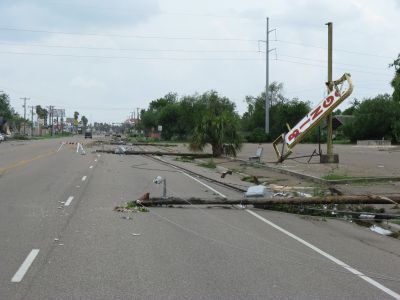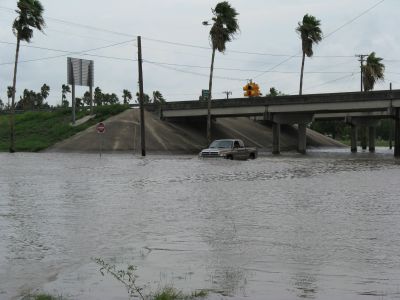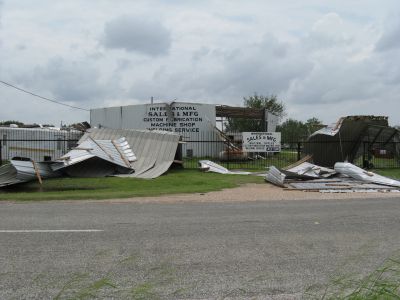Hurricanes
Hurricanes are strong tropical storms that bring heavy rain, strong winds, and storm surges. The Rio Grande Valley is vulnerable to hurricanes, especially during hurricane season (June–November). Because our region is close to the Gulf of Mexico and has many low-lying areas, hurricanes can cause dangerous flooding, wind damage, and power outages.
Understanding alerts and terminology:
A hurricane is a large storm system that forms over warm ocean waters and can bring strong winds (74 mph or higher), heavy rain, flooding, and tornadoes. In the Rio Grande Valley, hurricanes can cause major damage to homes, roads, and power lines, sometimes with very little time to prepare. Hurricane season runs from June 1 to November 30 each year in the Atlantic Ocean, Caribbean Sea, and Gulf of America.
What is a hurricane?
- A hurricane is a type of storm with winds of at least 74 mph (119 km/h).
- It forms over warm ocean water and can grow in size and strength as it moves.
- The storm is made up of:
- High-speed winds that can knock down trees and power lines.
- Heavy rainfall that can lead to flash floods.
- Storm surge – a dangerous rise in sea level that floods coastal areas.
Common hazards from hurricanes:
- Wind damage to buildings, trees, and power lines
- Heavy rainfall and flash flooding
- Storm surge (a rise of ocean water that floods coastal areas)
- Tornadoes spawned by the storm
- Power and water outages
Hurricane Dolly impacts at the city of Harlingen 2008 (Photos from NOAA)
Caring for Individuals with Alzheimer’s or Dementia During Hurricanes
Hurricanes can be especially stressful and dangerous for people living with Alzheimer’s or dementia. Changes in routine, loud noises, evacuations, and unfamiliar environments can increase confusion and anxiety. Caregivers need to plan ahead to ensure safety and comfort.
Before a Hurricane: Preparedness Tips
- Make an emergency plan that includes evacuation routes and where you will go (shelter, hotel, family home).
-
Prepare an emergency kit specifically for the person with dementia, including:
- At least 3–7 days of medications in labeled containers
- Copies of medical records and ID cards
- Comfort items (blanket, photo, favorite object) to reduce stress
- Easy-to-eat snacks and bottled water
- Create an ID bracelet or card with the person’s name, your contact information, and medical needs.
- Talk to your doctor about how to manage medications or medical devices if power is lost.
- Register with local authorities if there is a registry for individuals with special needs during disasters.
- Inform family and neighbors of your evacuation plans so they can provide help if needed.
During a Hurricane or Evacuation
- Stay calm and reassuring—individuals with dementia can sense fear and confusion.
- Keep familiar items nearby to reduce anxiety.
- Maintain a routine as much as possible, even if in a shelter.
- Ensure hydration and nutrition, as individuals may forget to eat or drink.
- Never leave them alone, especially in crowded or unfamiliar places.
After a Hurricane: Recovery and Support
- Monitor for signs of stress or confusion, which can worsen after disruptions.
- Seek medical help if there are any injuries, worsening health conditions, or behavioral changes.
- Use support networks—contact local Alzheimer’s groups or social services for recovery help.
- Update your emergency plan based on what worked and what didn’t.








